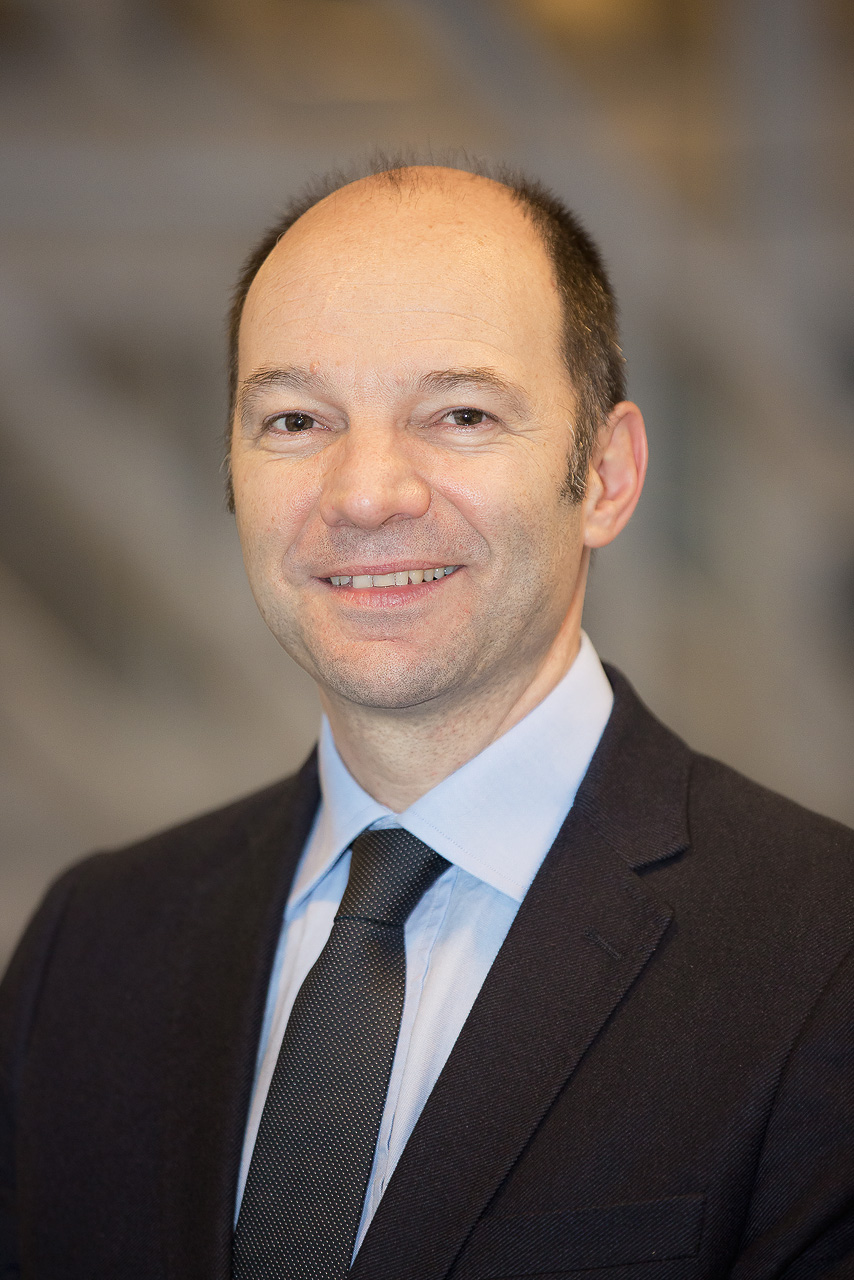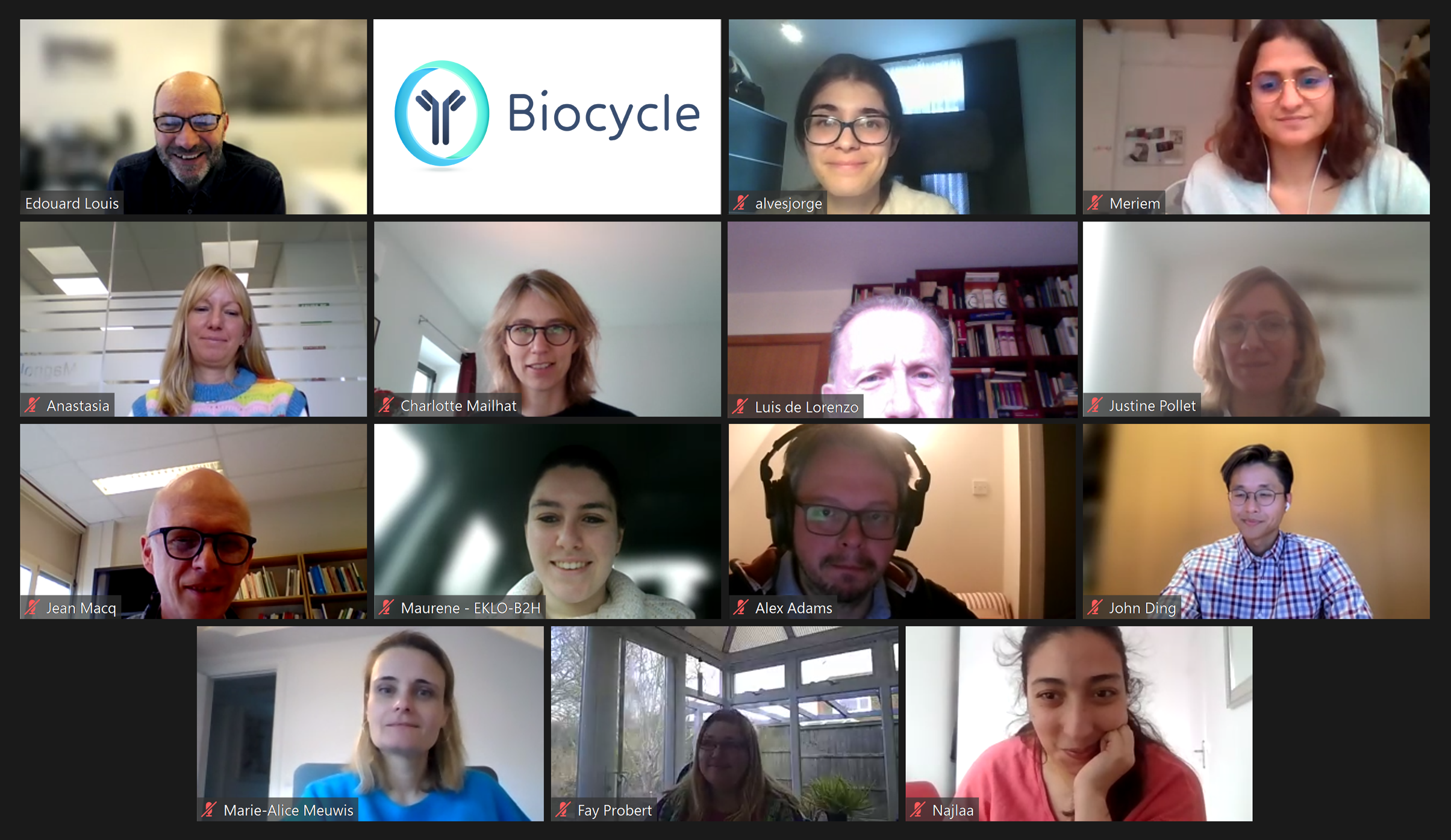News from BIOCYCLE
Edouard Louis
 Edouard Louis © ECCO |
The BIOCYCLE project has now been ongoing for 7 years. This project, funded by the European Commission under the Horizon 2020 programme, aims to explore different aspects of the question of treatment de-escalation in moderate-severe Crohn’s Disease requiring a combination therapy with anti-TNF and antimetabolites to control the disease. An unsolved question is whether it is possible to de-escalate therapy once the disease has been stabilised. This question is important for several reasons, including safety, tolerance, quality of life and costs, to name the most prominent. BIOCYCLE includes a randomised, three-arm, controlled clinical trial on 210 patients in seven European countries, several patients’ and health care providers’ surveys in Europe and the United States, a biomarker research programme and pharmaco-economic analysis. ECCO is mainly involved in the monitoring of the project (through IBDIM) and is the work package leader for dissemination of the results. BIOCYCLE is a 7.5-year-long project and was launched in April 2015.
The global aim of BIOCYCLE is to try to deliver an integrated multidimensional and tailored response to this difficult question of treatment de-escalation in Crohn’s Disease, also taking into account patients’ preferences and perspectives.
What has been achieved so far?
The project includes nine work packages encompassing many aspects of the question of treatment de-escalation in Crohn’s Disease. These include clinical outcomes, pharmaco-economics, patients’ and doctors’ points of view and biomarker development.
The SPARE clinical trial has now been completed. The last patient left the trial in March 2021 and the first data were presented as an oral plenary presentation at the virtual 2022 ECCO Congress. In accordance with working hypotheses, the relapse rate was higher in the group of patients stopping infliximab (36% over 2 years as compared to 14% among patients continuing combination therapy and 10% among patients stopping anti-metabolite), but the response to retreatment in relapsers was excellent and the rate of treatment strategy failure (no remission after retreatment, or development of a complication) was similar across groups (around 10%), leading to a very similar time spent in remission across the groups. This is the first major result of the SPARE clinical trial and a very important one for the project, highlighting an increased risk of relapse upon infliximab withdrawal but also no major harm for relapsing patients. Moreover, >60% of the patients receiving anti-metabolite monotherapy remained in remission after 2 years. Importantly, there was also no significant evolution in biomarkers or endoscopic activity in patients stopping infliximab, and infliximab trough levels or levels of antibodies to infliximab remained stable in patients who resumed infliximab after a relapse: these findings suggest that there was no subclinical escape of the disease over the 2 years of infliximab withdrawal.
Combined with the patients’ survey that we previously performed in France and the United States, which highlighted the wish of a substantial number of patients to contemplate treatment de-escalation, these findings emphasise the importance of continuing to explore this track of treatment de-escalation. The patients’ survey has previously been reported in ECCO News and has now been fully published.
One important remaining question is how best to select patients for a strategy of treatment de-escalation, in particular infliximab withdrawal. In this respect, the first analysis of the SPARE trial confirmed a series of clinical predictors, in particular the persistence of endoscopic lesions, elevated CRP and elevated faecal calprotectin. Beyond that, works are currently ongoing in Oxford, Tel Aviv and Liège to try to determine biological and molecular profiles associated with risk of relapse to try to better select our patients and further minimise the risks for them.
Another important aspect is obviously the cost, although this has become less prominent with the decrease in price thanks to infliximab biosimilars. The theoretical pharmaco-economic model previously developed by Gothenburg University is currently being challenged by the results of the SPARE trial. The data will be generated in the coming months.
Importantly, to complement these data from the clinical trial, real-life data will also be collected on treatment de-escalation thanks to the DECIDE project, which will be done using the UR-CARE database. This project has now gone through the brand new process of UR-CARE project validation and should be launched in April. The data collected will focus on the proportion of patients withdrawing biologic or immunomodulator treatment while in sustained steroid-free remission, the characteristics of these patients and the main clinical outcomes.
Beyond generating original data on treatment de-escalation, BIOCYCLE has the mission of disseminating these results to ensure they can be incorporated into routine practice with the aim of improving IBD patient care. To this end, BIOCYCLE, in partnership with ECCO, has organised a Topical Review on treatment cycles in IBD. The working groups are currently at work: the literature search and a first draft of the manuscript with statement should be ready by the end of April, with a first online vote organised in May, a consensus meeting in September and the final Topical Review manuscript at the end of the year. Three BIOCYCLE dissemination workshops and e-learning material will also be organised based on the content of this Topical Review in the autumn; the first workshop will be held in Gothenburg in September, with further workshops in Berlin in October and Nice in November 2022.
The fourth administrative and scientific report was approved by the European Commission in autumn 2019 and the next report, which will be the final one, is due in January 2023.
For more information, see the BIOCYCLE website: http://biocycle-project.eu/; EU reference: grant agreement No 633168 – BIOCYCLE (PHC-13-2014)
Browse through the gallery:
Pictures are subject to copyright © ECCO
